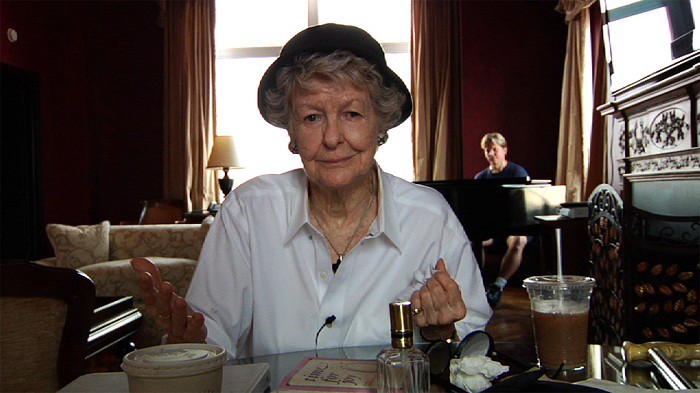Chiemi Karasawa founded Isotope Films in 2005 to develop and produce original content based on non-fiction material. Her award-winning work as a producer
includes Billy the Kid, The Betrayal, Tell Them Anything You Want: A Portrait of Maurice Sendak, Elevate and Harry Dean Stanton: Partly Fiction. Elaine Stritch: Shoot Me is her directorial debut. (From Tribeca Film
Festival)
Elaine Stritch: Shoot Me
is playing as a part of the London Film Festival.
Women and Hollywood: Please give us your description of the film playing.
Chiemi Karasawa: Elaine Stritch: Shoot Me is a verite documentary that chronicles the legendary performer during the year leading up to her 87th
birthday. The film weaves glimpses of her past, rare archival footage, and interviews, into her present day experience, to create a dimensional portrait of
a remarkably unique woman confronting the universal elements of aging — on her own terms.
WaH: What drew you to this story?
CK: Ironically, I noticed Elaine Stritch at my hair salon, and my hairdresser encouraged me to make a documentary about her. When I researched her
incredible history, and learned about her remarkable personal character, I became obsessed with the opportunity to know more about her, and expose more of
the world to her.
WaH: What was the biggest challenge?
CK: Elaine Stritch.
WaH: What advice do you have for other female directors?
CK: I’m not sure how to translate any advice for a director into “female” or male, as I’ve only been a female, but I would say to any person wanting to
direct: One must have faith, tenacity and commitment.
WaH: What’s the biggest misconception about you and your work?
CK: If there are any misconceptions at all — that it’s easy.
WaH: Do you have any thoughts on what are the biggest challenges and/or opportunities for the future with the changing distribution mechanisms for films?
CK: With the ease and reach of digital distribution, I think the biggest challenge will be: How will filmmakers find a way to earn a living when the
distribution revenues do not typically equal the time/expense involved in making a film?
WaH: Name your favorite women directed film and why.
CK: There are many — from Shirley Clarke to Jessica Yu, but most recently — Zero Dark Thirty … because it was directed with a sense of humanity,
dynamicism and class that transcends gender.







